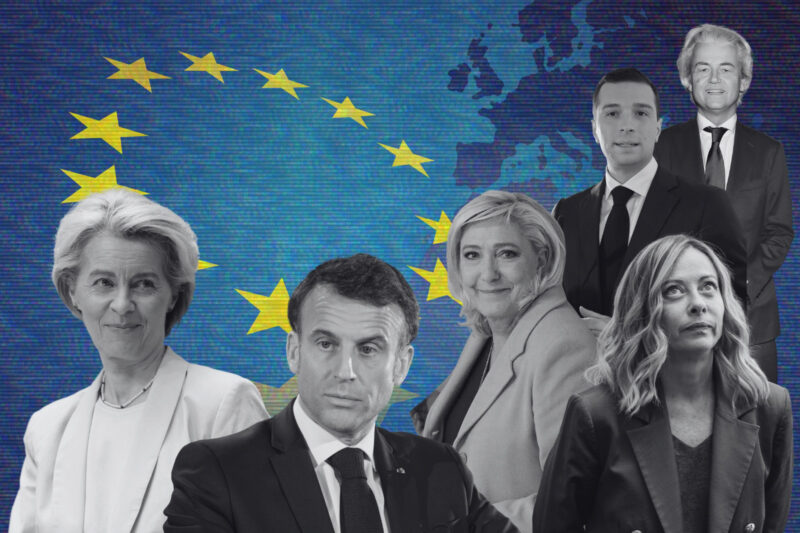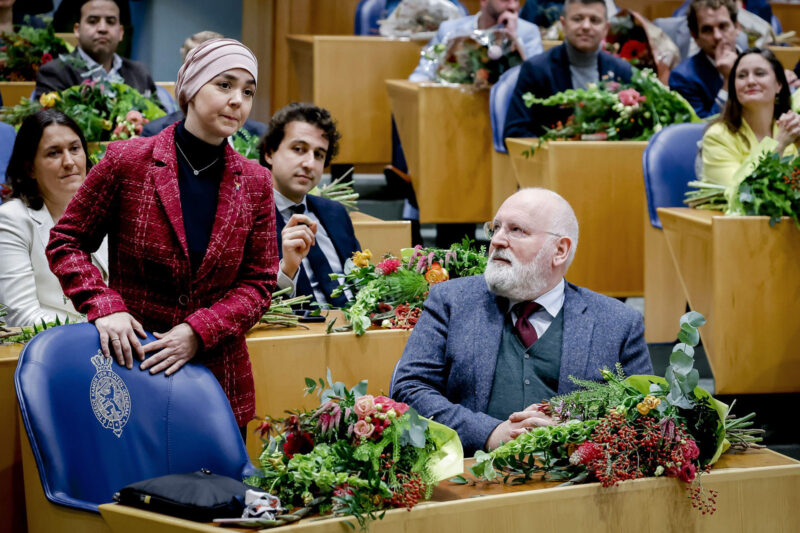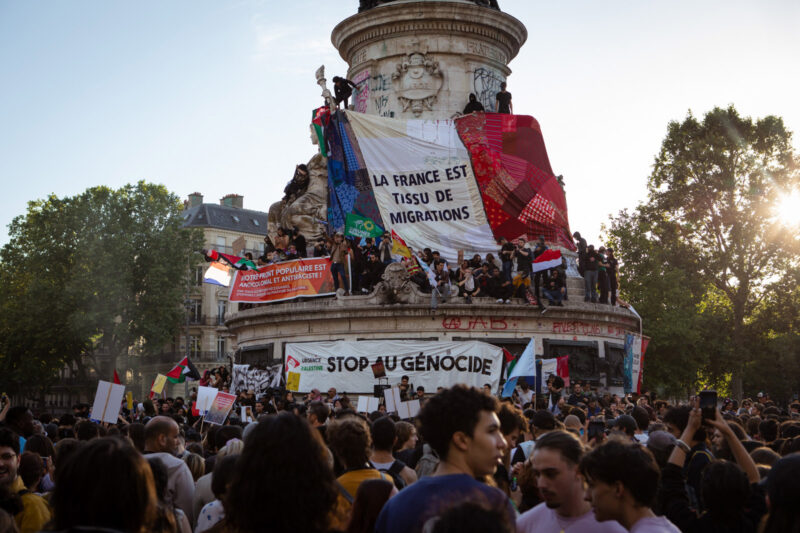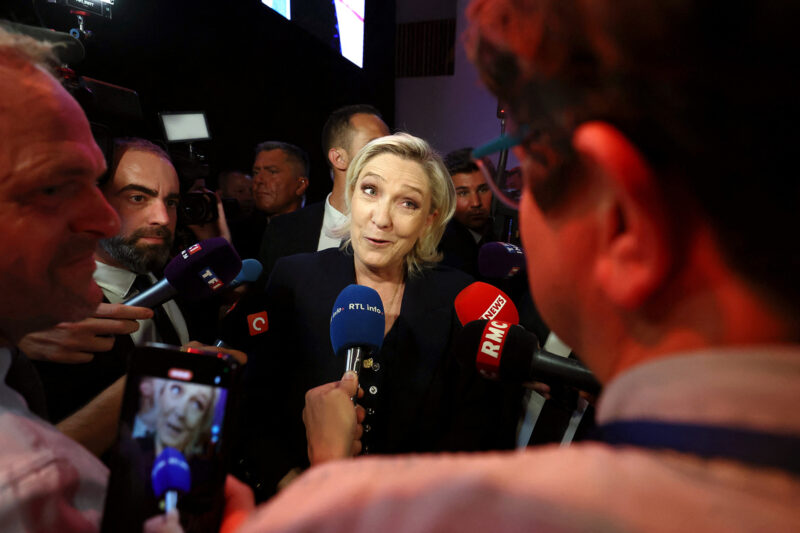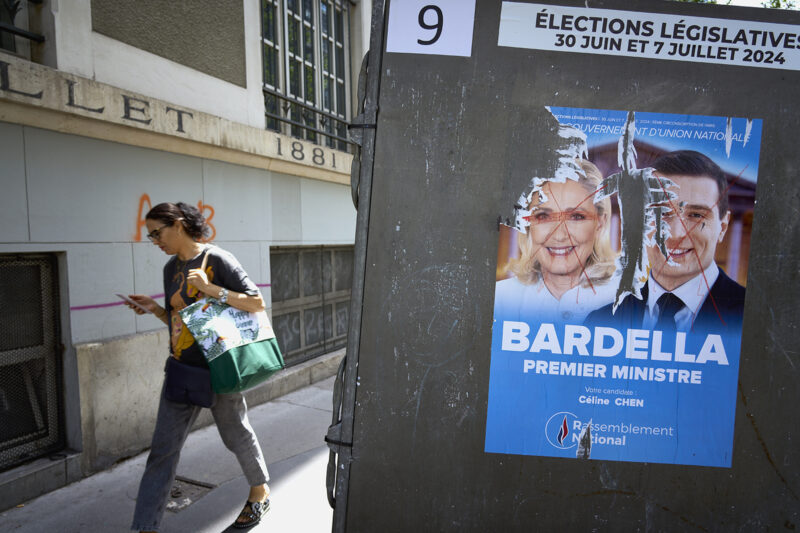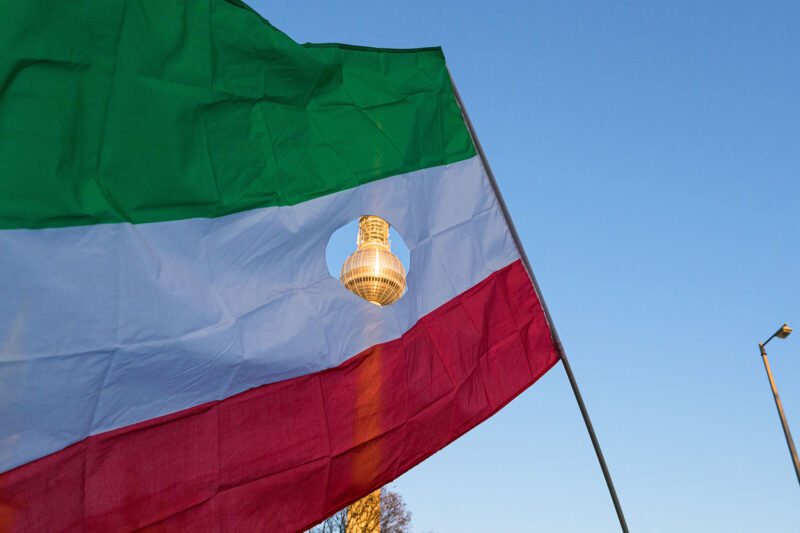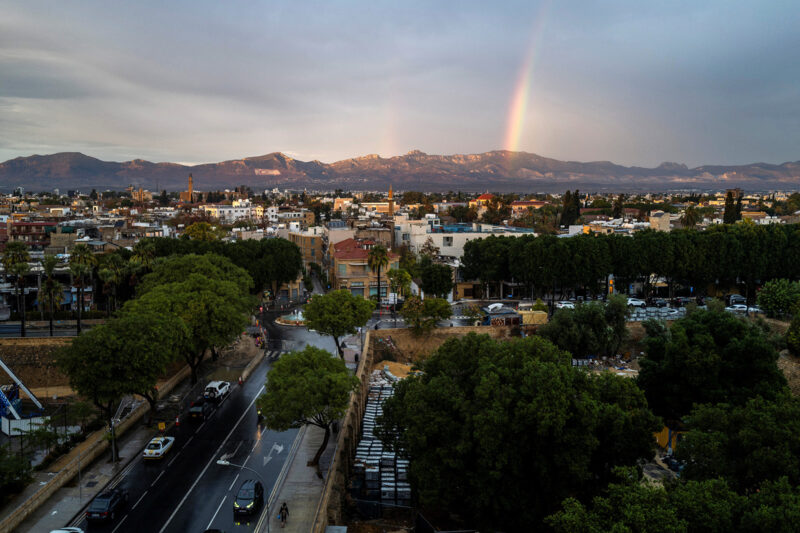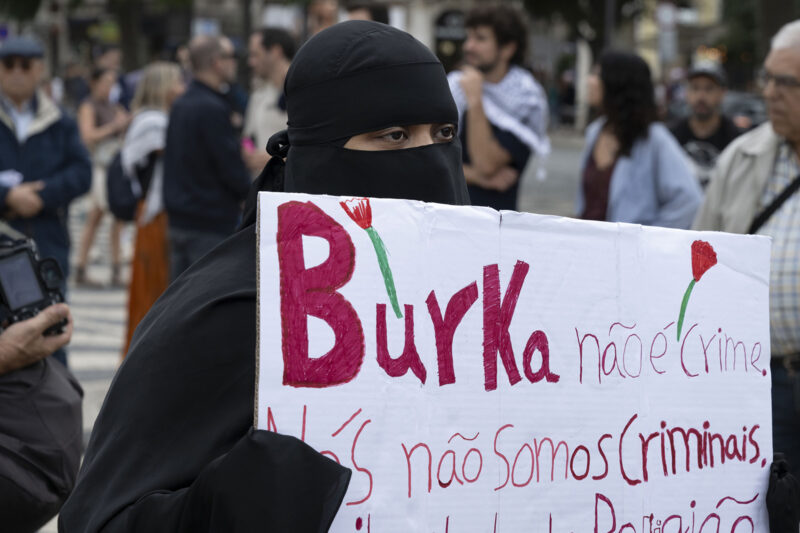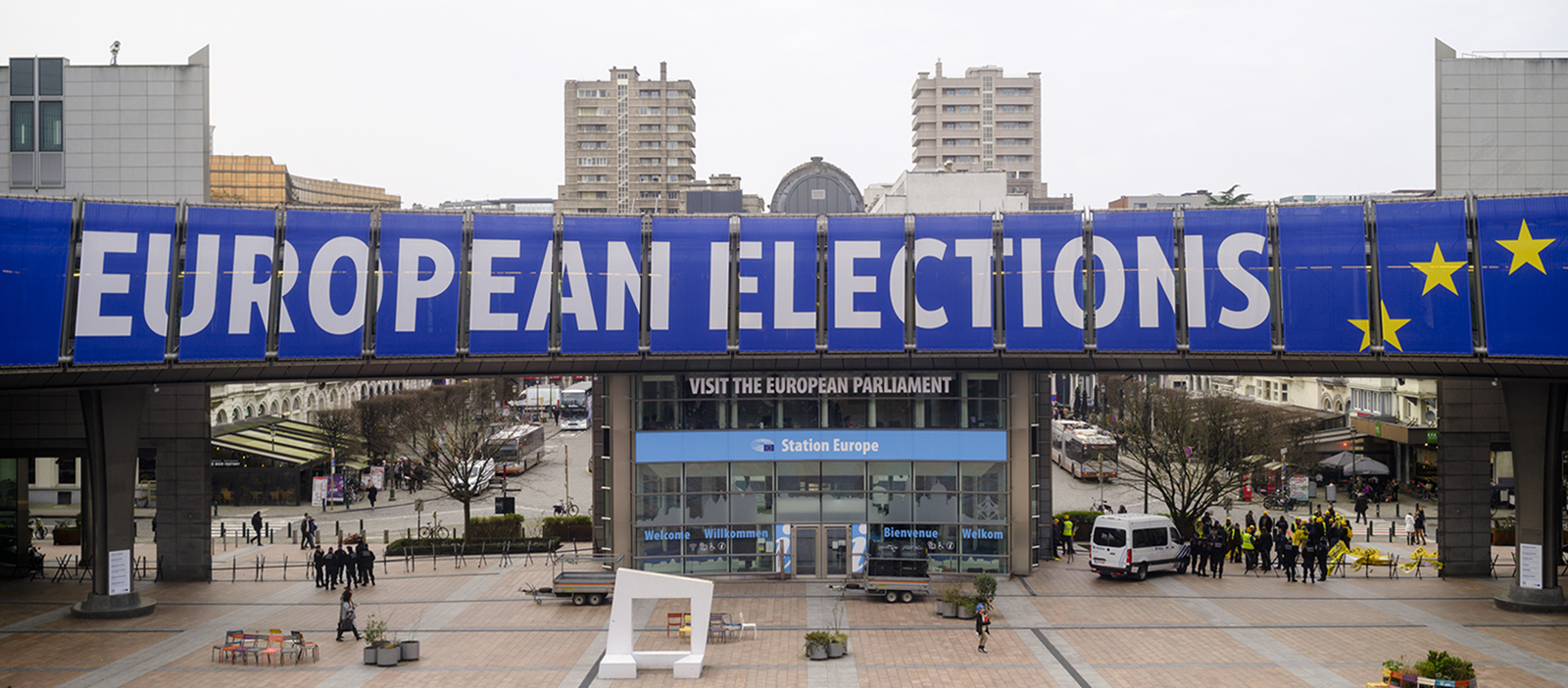
Will June’s EU elections see an unstoppable rise of the far right?
Analysts predict that culture wars and anti-immigrant policies will be driving votes in the upcoming poll
On 6 June, 400 million citizens across 27 EU member states will go to the polls to elect the next European parliament. Voters are expected to push the block further to the ideological right, changing the political direction of Europe’s institutions on key issues like climate, defence and migration.
Polling suggests that far-right and hardline conservative parties could finish first in nine EU states, including France and the Netherlands, and second or third in another nine, including Germany, Spain, Portugal and Sweden. Centre-left and green parties are likely to struggle while the far-right alliance Identity and Democracy — which includes French nationalist Marine Le Pen’s National Rally — is predicted to increase its seats from 59 to 83. A more right-wing conservative may replace Ursula von der Leyen as head of the European Commission, the EU executive responsible for initiating and enforcing its laws.
If these predictions are accurate, the consequences for Europe’s minorities could be significant. The Netherlands offers a recent and alarming example of the far-right in power. Even in the lead-up to the election of Geert Wilders and his anti-Islam Party for Freedom (PVV) in parliamentary elections in November, the country saw a 33% increase in incidents of discrimination. Muslim leaders have reported a dramatic increase in violence, discrimination and exclusion of Muslims since.
Hyphen spoke with three analysts across the EU to understand how the elections affect Muslim Europeans. Francesco Pasetti is a research fellow in migration at Spanish thinktank Barcelona Centre for International Affairs; Niels Spierings is a sociologist studying inclusion and exclusion at Radboud University in the Netherlands; and Yasser Louati is a French political analyst and the head of the Committee for Justice & Liberties, a human rights organisation focused on fighting racism.
Answers have been edited for clarity.
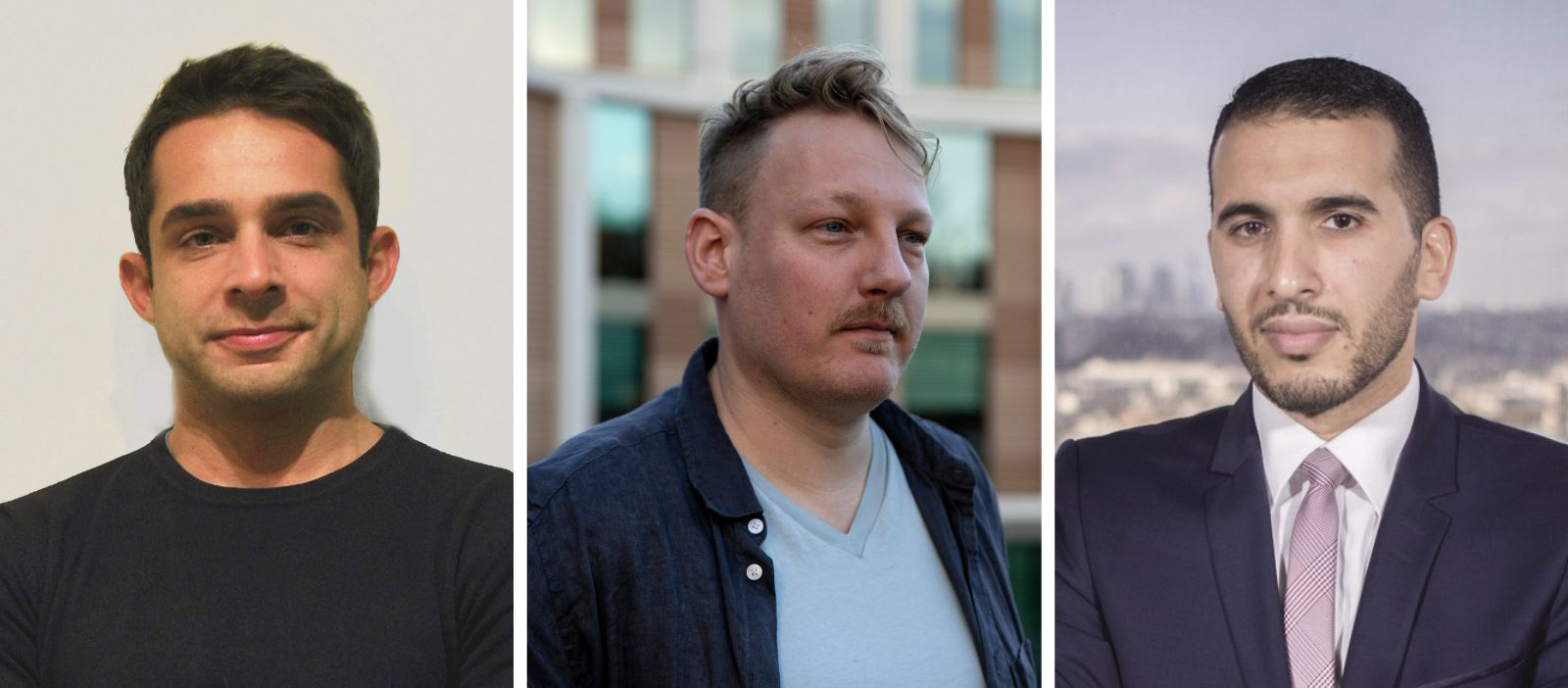
Q: What’s at stake for Muslim voters in these elections?
Yasser Louati: Who will represent them in European institutions? What kind of Europe is being built before our eyes? The rise of the far right is a secret to no one. It’s not even a rise anymore, they are literally taking over. Gaining seats in the European parliament will only make them more legitimate, and with their entry into the mainstream, we’re headed toward more racism, more repressive laws, more neoliberal policies.
Francesco Pasetti: There is a huge debate around migration, which tends to be negative and focus on Muslim migrants. This is an issue for Muslim voters, because there will probably be more negative political discourse around them. Mosques, religious symbols (including hijabs) and integration have all been hot-button issues in national debates, but they may now also become divisive on the European level.
Q: What are the issues that most concern Muslim voters?
Yasser Louati: In France, the key concern is media harassment. “Islamodiversions” is what I call it, when the media raises issues around Islam and Muslims to avoid speaking about unemployment, poverty and corruption. So the concern for Muslims, individually and at a community level, is their relentless vilification by the press, which translates into a negative public perception of Muslims and then discrimination.
Niels Spierings: We can’t really homogenise Muslim voters, they are individuals with different worries. But in our surveys, Muslims do mention racism, discrimination and the migration debate a lot. Economic issues also — poverty and the housing shortage, which is a huge problem in the Netherlands. The children of Muslim migrants who have a decent education and good jobs still feel excluded from society and face discrimination in the housing and labour market.
Q: What is the outcome that would be most problematic for Muslim Europeans?
Yasser Louati: The fear is that Marine Le Pen will gain power but really, her ideas are already in power. French president Emmanuel Macron’s anti-separatism law, passed in 2021, is everything the far-right has been dreaming about. It gives authorities the capacity to criminalise people based on their political ideas, crack down on Islamic organisations, and strip people of their citizenship. The only difference if she becomes more powerful in the European parliament is that she would have access to institutions and her removal from office will be even more difficult.
Francesco Pasetti: Spain will probably be one of the countries in which the growth of the far right will be less evident, but countries like Italy, France, and Hungary are expected to see a significant increase. The European Conservatives and Reformists and Identity and Democracy groups together might represent the second force in the European parliament. The main fear is around the scope of their victory.
Niels Spierings: In the Netherlands, nationalist, anti-Muslim parties are likely to gain seats, as they did in the recent parliamentary elections. However, while the European Conservatives and Reformists and the nationalist Identity and Democracy groups are both expected to grow, they will probably still have fewer MEPs than the Christian Democrats and Social Democrats, flanked by the liberals and greens. The main concern for European Muslims would be if the left and liberal parties lose ground and the centre-right is pulled to the far right.
Q: Do Muslim voters feel represented in Brussels?
Yasser Louati: Political representation is an issue. La France insoumise is the only party that has taken Islamophobia seriously and called out the anti-separatism law, but even it doesn’t provide a real platform to Muslim candidates. This isn’t a climate in which you can seek public office, get elected for your competence, and still own your identity, whatever that might be. Parties need to put forward competent candidates with the courage to fight for the agenda on which they were elected. Having a Muslim elected who’s just going to fall in line, like the ones who joined Macron, how useful are they?
Francesco Pasetti: It’s hard for Muslims to have real representation. They might find that their interests are more aligned with left and centre-left parties as these are the political ideologies that tend to recognise the value of diversity and multiculturalism. But this doesn’t mean that Muslims want to vote for them. There are other issues that are more important to Muslim conservatives. For many, it can be a matter of choosing between different elements of their identity. So I wouldn’t be surprised if there’s a high proportion of abstention among Muslim voters.
Niels Spierings: We know from our data that Dutch Muslims feel less represented than non-Muslims. When we asked respondents if they felt that people with a migrant background were adequately represented, the answer was also overwhelmingly, no.
Q: What are the issues that are likely to motivate people to vote?
Yasser Louati: People don’t go to vote in European elections, they don’t see the point. But the problem is that the far right do; electoral success would give them legitimacy and power to push their agenda. Their agenda to reform Europe is not about becoming more democratic, it aims to protect the European ethnic group from legal and illegal migration.
Francesco Pasetti: The shift to the far right is about western society’s changing social identity. When people vote, they’re not thinking about class or economic issues anymore, they care about culture and identity issues. There has been a shift away from politics of redistribution towards politics of recognition, and from class to culture.
This is where migration issues come in and far-right representatives mobilise their propaganda around it. They know that even working-class voters can vote against their economic interests if a party offers the message that they are protecting their cultural identity. This is a key strategy of the far right and a big incentive for them to mobilise the anti-immigrant and anti-Muslim discourse.
Niels Spierings: I don’t know if we’ll hit the 40% mark for voter turnout. It’s mainly the very engaged group that go and vote — on the left that’s the highly educated, politically interested and the pro-European. In general, the driver is if people feel they might lose something, not so much what they might gain.
The EU is blamed for a lot, but at the same time, it’s not perceived as being able to make much of a difference. The debate in European terms is not so much about Islam or policies on things like building more mosques. If anything, it will be around the environment or migration, with left-wing parties pushing a campaign around the environment and the right on migration.
 Newsletter
Newsletter


